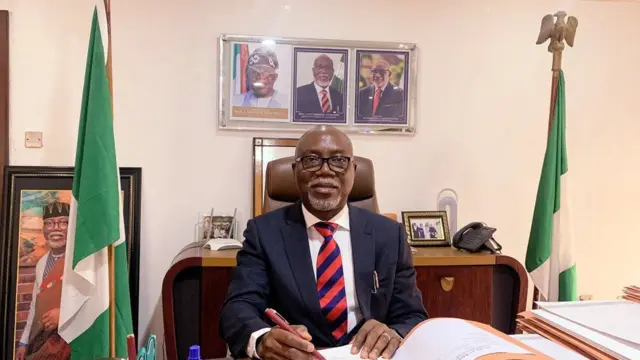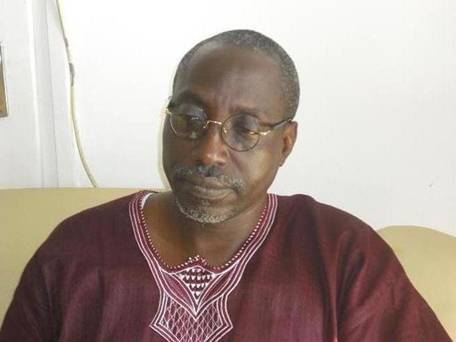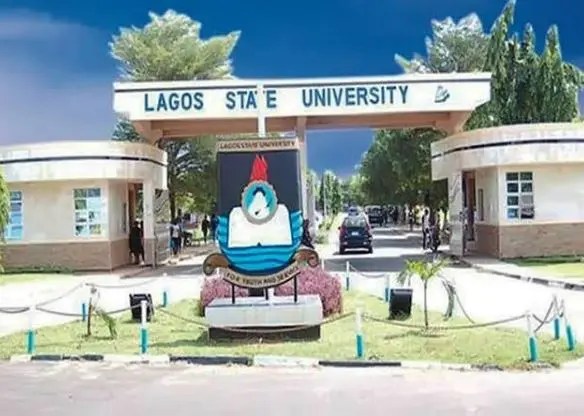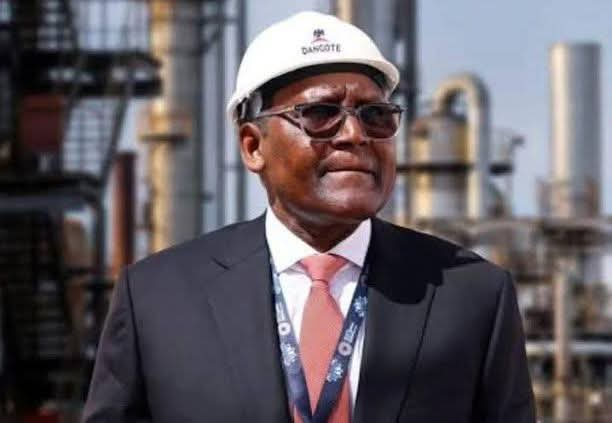
WHY ONDO’S “LEAST INDEBTED ” CROWN IS ACTUALLY A BADGE OF ECONOMIC FAILURE BY KUNLE ODUSOLA-STEVENSON

By Kunle Odusola-Stevenson
GREATRIBUNETVNEWS–Ondo State has just been ranked the least indebted state in the South-West — a rare fiscal achievement in an era of reckless borrowing by many sub-nationals. With a domestic debt of just ₦11.76 billion as of Q1 2025, compared to Lagos’ ₦874 billion and Ogun’s ₦190 billion, Governor Lucky Aiyedatiwa’s administration may be tempted to showcase this as evidence of exemplary prudence. But here lies a deeper paradox: low debt is not automatically good governance. In economic development, productive borrowing is often the engine of progress — the catalyst that builds ports, gas pipelines, industrial corridors, and innovation hubs that expand the revenue base. Ondo’s ultra-low debt profile is not necessarily a sign of superior management; it may well be a symptom of under-ambition, economic inertia, and structural risk aversion.
Aiyedatiwa’s government appears anchored to stability rather than transformation. While other states leverage credit instruments to unlock industrialization, stimulate value chains, and create jobs, Ondo remains overly cautious, almost immobilized by its obsession with maintaining immaculate balance sheets. Lagos, for instance, borrows aggressively yet strategically, sustaining a healthy debt-to-GDP ratio because its loans finance revenue-generating infrastructure. Ondo, by contrast, boasts clean debt numbers but lacks visible prosperity. Rich in oil, gas, arable land, and coastline, the state still has no deep-sea port, no major industrial hub, no export corridor, and no significant gas-based investment initiative to anchor long-term growth. The state’s inherent potential remains largely dormant.
It is against this backdrop that the administration’s renewed emphasis on project discipline becomes crucial. On November 25, 2025, during the swearing-in of new appointees, Governor Aiyedatiwa reiterated the importance of accountability in public projects — highlighting time, cost, quality, and flexibility as his administration’s four pillars of execution. Central to this renewed reform drive is the Performance and Project Implementation Monitoring Unit (PPIMU), which he framed as a mechanism to ensure “standard project implementation, monitoring, reporting, judicious use of limited resources and fiscal responsibility” under the “OUR EASE” agenda.
Important correction and clarification:
The PPIMU is not a creation of the Aiyedatiwa administration. It was instituted under Governor Rotimi Akeredolu in mid-November 2021 through an Executive Order, with his son, Babajide Akeredolu, appointed as its pioneer Director-General. The unit’s goal from inception was to coordinate, monitor, and evaluate government projects to reduce inefficiencies and strengthen implementation discipline. What happened on 25 November 2025 was not the creation of a new body, but rather the appointment and swearing-in of a new Director-General by Governor Aiyedatiwa, effectively continuing — not recreating — the existing institutional framework. This history matters because it underscores the fact that Aiyedatiwa inherited both the mechanism and the challenges of PPIMU; what remains to be proven is whether he will empower it in ways his predecessor never fully did.
Still, the renewed political emphasis on PPIMU is significant. The unit was designed to function as a central watchdog, ensuring that ministries and contractors are held accountable for timelines, budgets, and quality standards. If truly empowered, PPIMU could mandate milestone-based payments, preventing the era of upfront mobilization that disappears into private pockets. It could enforce independent quality verification before final payments, veto inflated variations, and maintain a real-time digital dashboard accessible to the public, allowing citizens and journalists to monitor every project. Public scorecards could name-and-shame underperforming MDAs or contractors, while repeat offenders could be referred to anti-corruption agencies like the EFCC.
But this is precisely where the Aiyedatiwa paradox becomes sharp: a monitoring unit, no matter how efficient, cannot compensate for the absence of bold economic ambition. PPIMU is built to optimize resources — not to expand them. It can ensure that projects are delivered on time and within budget, but it cannot, by itself, generate the visionary investments that transform a state’s economy. You cannot monitor your way into prosperity. A “clean” project pipeline is meaningless if the projects themselves are timid, unimaginative, or too small to shift the economic trajectory of the state.
The truth is that Aiyedatiwa must learn to balance caution with courage. Ondo cannot develop by merely avoiding mistakes; it must begin to take calculated risks. The administration must borrow — productively, not recklessly — to fund transformative infrastructure: a deep-sea port that unlocks maritime trade; a gas distribution backbone that powers industries; an industrial corridor that attracts manufacturing; or a coastal tourism belt that generates jobs and foreign exchange. Once these bold initiatives are launched, PPIMU becomes vital — ensuring that every project is delivered efficiently, transparently, and without the financial hemorrhage that has historically crippled Nigerian public works.
Ondo risks becoming the South-West’s fiscal saint but economic underperformer — spotless on spreadsheets but stagnant on the ground. Governance is not merely about saving money; it is about multiplying value. Aiyedatiwa must choose whether he wants to be remembered as the governor who balanced the books or the leader who catalyzed growth. Lagos and Ogun are building tomorrow; Ondo cannot afford to sit in silent stability.
With PPIMU properly empowered — direct access to the governor, power to halt payments, legal backing, and full transparency — waste and delay can finally be defeated. But to escape the paradox, the administration must pair this oversight with ambition. Only then can Ondo move from fiscal caution to meaningful, measurable development.
Kunle Odusola-Stevenson
Public Relations, Policy & Governance Analyst, Lagos





